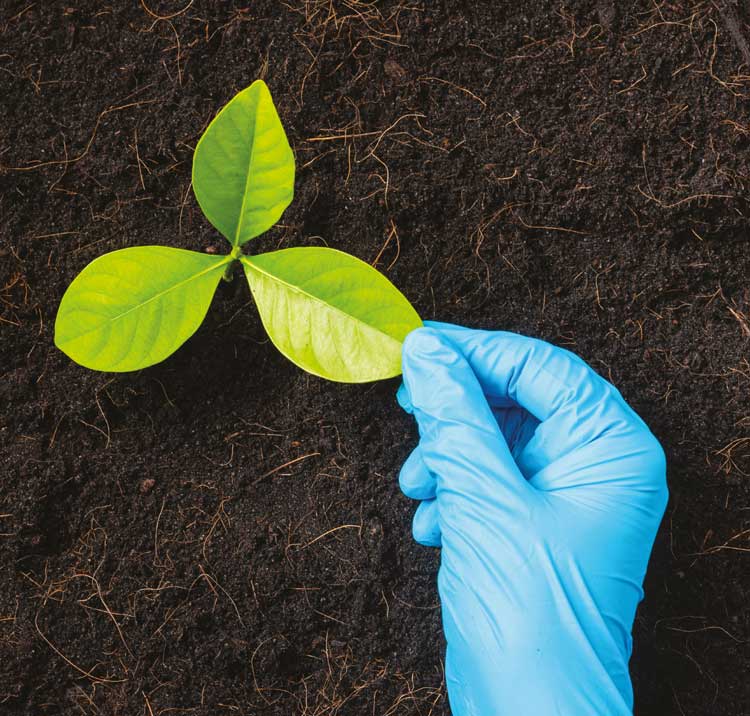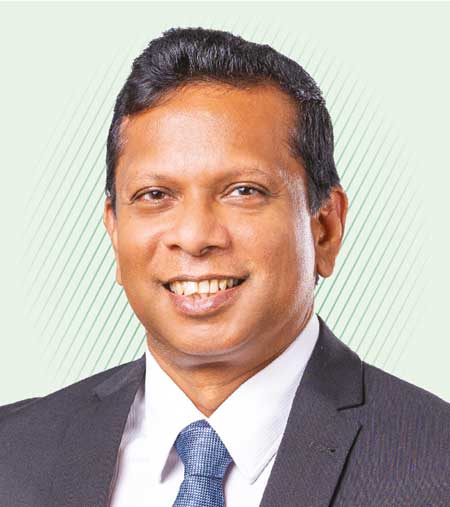ECONOMIC UPLIFTMENT
Holistic Growth Mechanisms
Dr. Mahesha Ranasoma highlights a sustainable business avenue that diversified entities can engage in
Over the years, owing to climatic conditions and manmade issues, the sustainability of the natural rubber industry has been constantly under threat. Unregulated growth has led to deforestation, and improper farming methods resulting in increased carbon emissions and biodiversity losses.
“For a number of reasons, addressing issues relating to sustainable rubber farming practices has now become critical and it needs to be done while meeting the increasing demand,” avers Chief Executive Officer of GRI Dr. Mahesha Ranasoma.
On SMEs’ pivotal role in Sri Lanka’s rubber industry, Ranasoma explains: “Most natural rubber producers are smallholder farmers. Given that most of these enterprises hail from rural geographies, it will be these industries that will power their local communities to forge ahead and drive economic activity in their localities while largely supporting the alleviation of poverty in these communities.”
“The recent macroeconomic challenges have introduced volatility into the local rubber industry, and survival may be a challenge to many of them given the magnitude of the crisis. Yet, if the right ingredients are provided, SMEs have the potential to flourish and perform even better,” he maintains.
Multiple measures can be adopted to provide support to harness the SMEs’ true potential. Ranasoma identifies financial literacy especially at the micro level, and access to funding to grow their business, and access to R&D and technology as key drivers that promote SME growth.
“Such thrusts provide these enterprises with new thinking, and new ways to add value to products and services as they remain relevant and profitable to their customers and markets, whilst increasing productivity. Currently, it is the larger enterprises that have access to these domains, which can significantly improve their business development as a result,” he confided.
And the chief executive continued by saying: “Naturally then, they are able to reach much further in terms of growth than their SME counterparts. Rubber farming communities will also stand to gain immensely if they are directed to new ways of sustainable farming through research and development, and technology.”
“For SMEs to be truly competitive and grow, there must be a mechanism for them to penetrate international markets. This not only mitigates the risk of limiting business to one geography but significantly improves the opportunity for growth,” Ranasoma observes in conclusion.
“Given that most of these enterprises hail from rural geographies, it will be these industries that will power their local communities to forge ahead






